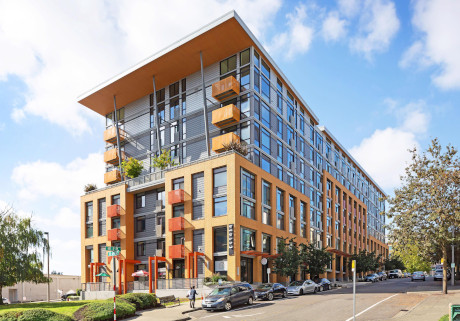— By Steven Chattin, Managing Director, Berkadia —
Nationwide, inflated interest rates are significantly impacting property values. In the Seattle metro, cap rates are increasing while values decline and bridge debt rates hover at 8 percent or higher — non-starters for many multifamily investors. The common play is to secure favorable short-term financing for if and when rates come back down. Due to these factors, family offices, high-net-worth individuals and private capital groups are the most active players in today’s market.
Lenders are also feeling the impact of the economic environment, with the current depth being extremely shallow for competitive options. As transactions slow, some players are scaling back or stepping out of certain arenas entirely. Umpqua Bank recently shuttered its multifamily lending operation on the West Coast. According to second-quarter data provided by CoStar, multifamily sales volume has decreased by 50 percent year over year. Agency debt is most favored right now with fixed rates preferred over floating rate debt. Where available, loan assumptions are generally the most attractive option and have bridged many deals across the finish line.
Challenges aside, many developers are staying busy as evidenced by the nearly 12,000 additional units projected within the Seattle-Tacoma metro by the end of 2023. In downtown Seattle, Waterfront Seattle’s Alaskan Way project, a $756 million waterfront redevelopment, is dubbed the largest civic project in Seattle in 60 years. Spanning 26 blocks and composed of 11 projects, Waterfront Seattle is estimated to provide a $288 million ongoing economic impact and 2,385 permanent jobs once stabilized. Developers like Holland Partner Group and Community Roots Housing are taking advantage of this redevelopment as downtown Seattle has the largest construction pipeline of all Seattle submarkets.
Bellevue is another hotbed of development activity in both the office and multifamily sectors. The area is welcoming a $2.6 billion urban neighborhood development in the Bel-Red district that will feature 5.3 million square feet of apartments, office buildings, restaurants, hotels and retail space across 16 city blocks. Holland Partner Group has two planned mid-rise apartments in the area, adding 640 market-rate units.
Inventory growth has remained consistent across the majority of Seattle’s submarkets, but Redmond has seen the greatest increase. This can be attributed to Microsoft’s headquarters, the city’s proximity to the area’s largest employers and less expensive rents than core areas. Redmond’s existing property inventory has increased by 8.4 percent, with developers adding 1,478 units in the past 12 months. This is a trend that will continue with 2,740 units currently under construction, trailing downtown Seattle’s 4,654 in the pipeline as of the second quarter.
Effective rents in Seattle metro reached $2,174 per month in the second quarter, having risen 1.1 percent year over year. After experiencing annual rental growth as high as 14.2 percent, a taper in leasing activity paired with elevated deliveries caused effective rent growth to cool over the past 12 months. Despite the slowdown, the local effective rent remained 20 percent above the national average through the second quarter.
Lingering side effects from COVID remain as 15 percent of landlords offered concessions through the first half of the year. Concessions averaged 6.3 percent of asking rent, slightly higher than the average of 6.2 percent offered between the second quarter of 2020 and the fourth quarter of 2021.
Seattle’s market resiliency and long-term outlook remain strong as the area is bolstered by tech, life sciences, aerospace and manufacturing, attracting top talent, skilled labor and high-paying jobs with stabilized economic outlooks. Surpassing its pre-pandemic employment peak in April 2023, the Seattle economy expanded 3.1 percent year over year through June 2023. Though hiring has slowed compared to last year, the market is outperforming the national average. Major companies like Amazon, Microsoft, Boeing and Meta will continue to attract white-collar tenant populations and an influx of new wealth for years to come.


